98 Famous Quotes By Charles Darwin, The Author Of On The Origin Of Species.
Charles Robert Darwin was a naturalist and geology expert from England, who is most well-known for propounding the theory of evolution that is often regarded as among the most significant findings in the history of biology. He studied medicine at the University of Edinburgh, before going on to attend Christ’s College at the University of Cambridge. It was at Cambridge that he followed his lifelong passion of the natural sciences. After completed a voyage on HMS Beagle that lasted 5 years, Darwin started studying all that he collected during that time in 1838 and eventually laid the foundations of the path breaking theory of natural selection. It took him decades of painstaking research to finally publish his conclusions and his theories remain the only accepted version of evolution due to its scientific rigour. His most well-known works are ‘The Descent of Man, and Selection in Relation to Sex’ about evolution and ‘The Formation of Vegetable Mould, through the Actions of Worms’ among others. His findings have made him one of the most important men in history. Darwin was a man who was far ahead of his time and his curious mind allowed him to explain one of mankind’s oldest questions. Here are some of the famous quotes by Charles Darwin.
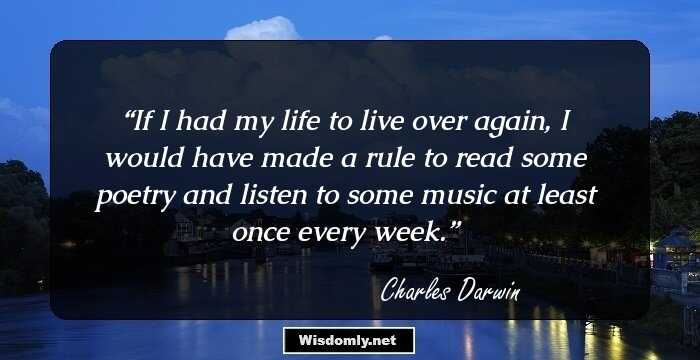
If I had my life to live over again, I would have made a rule to read some poetry and listen to some music at least once every week.
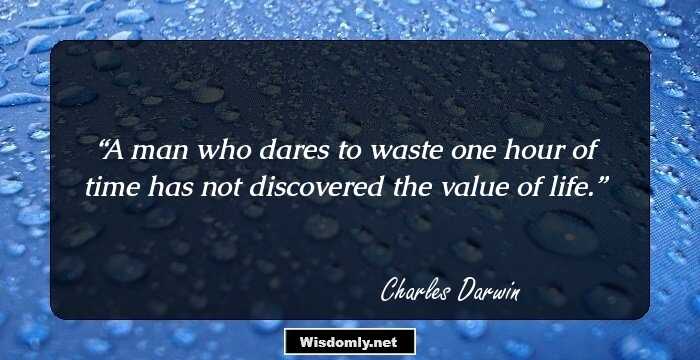
A man who dares to waste one hour of time has not discovered the value of life.
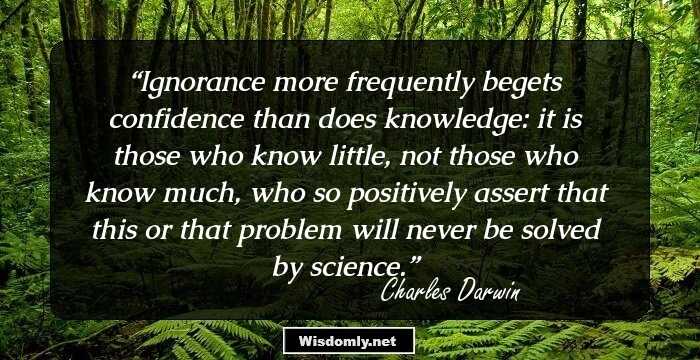
Ignorance more frequently begets confidence than does knowledge: it is those who know little, not those who know much, who so positively assert that this or that problem will never be solved by science.
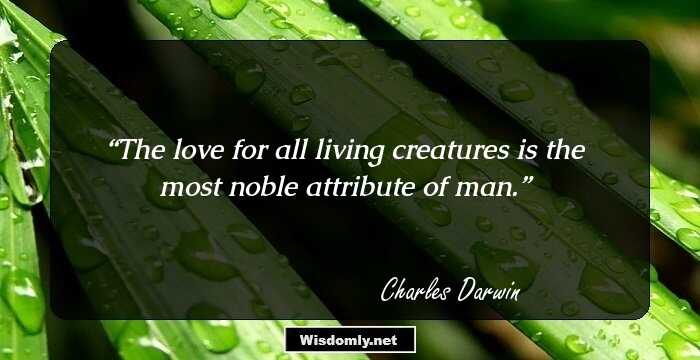
The love for all living creatures is the most noble attribute of man.
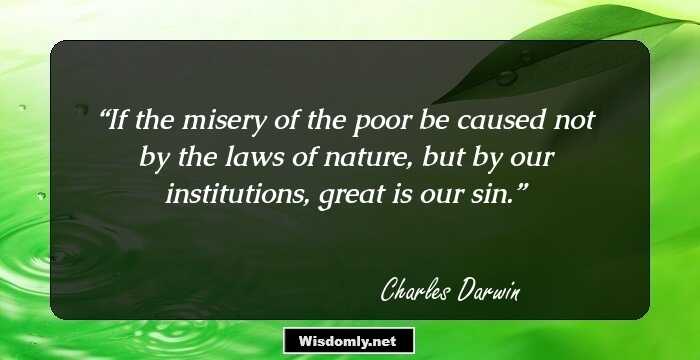
If the misery of the poor be caused not by the laws of nature, but by our institutions, great is our sin.
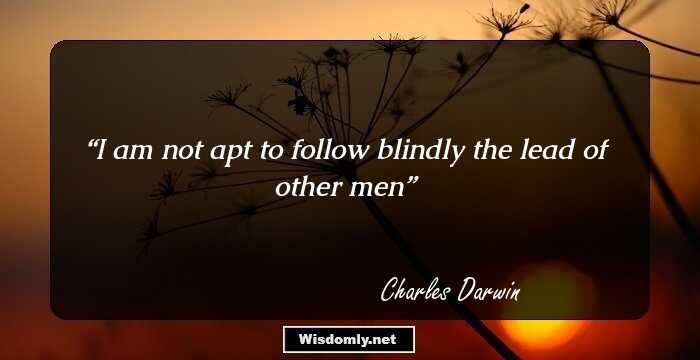
I am not apt to follow blindly the lead of other men
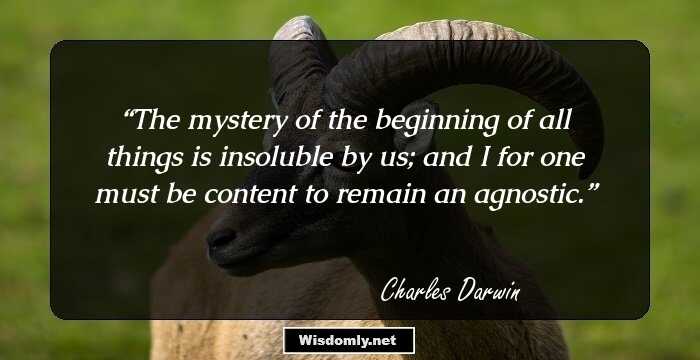
The mystery of the beginning of all things is insoluble by us; and I for one must be content to remain an agnostic.
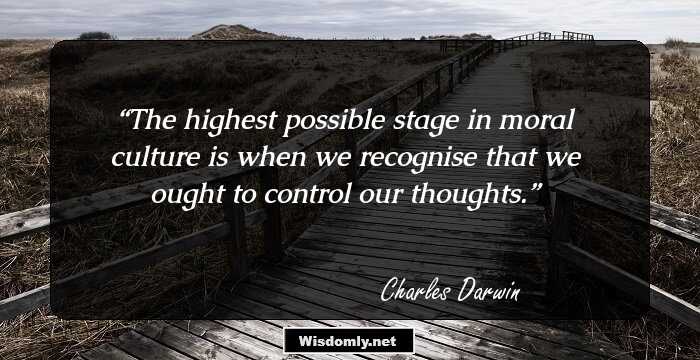
The highest possible stage in moral culture is when we recognise that we ought to control our thoughts.
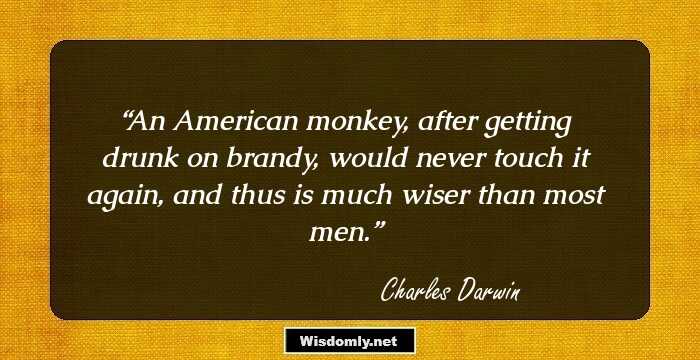
An American monkey, after getting drunk on brandy, would never touch it again, and thus is much wiser than most men.
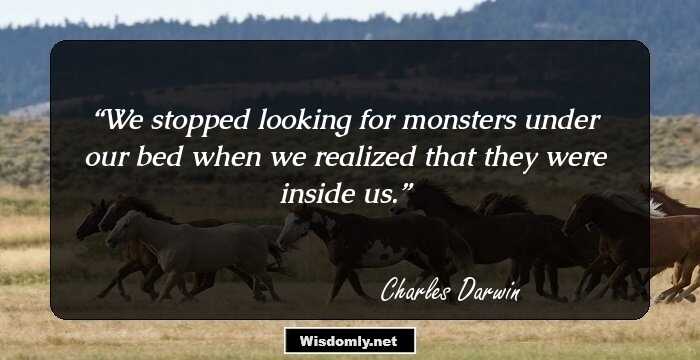
We stopped looking for monsters under our bed when we realized that they were inside us.
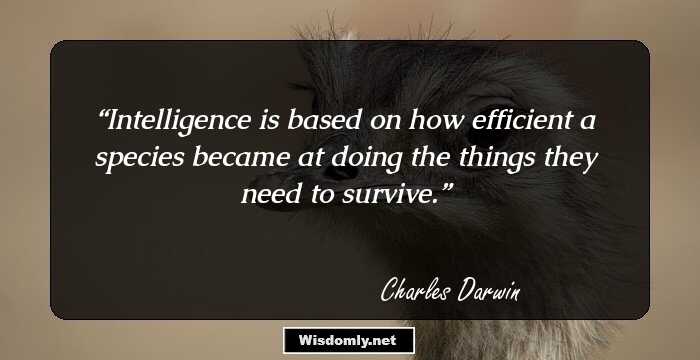
Intelligence is based on how efficient a species became at doing the things they need to survive.
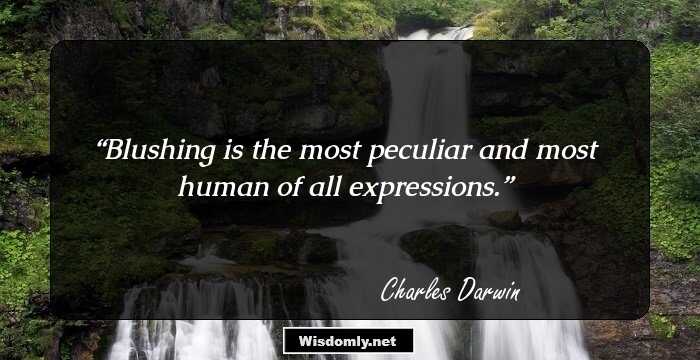
Blushing is the most peculiar and most human of all expressions.
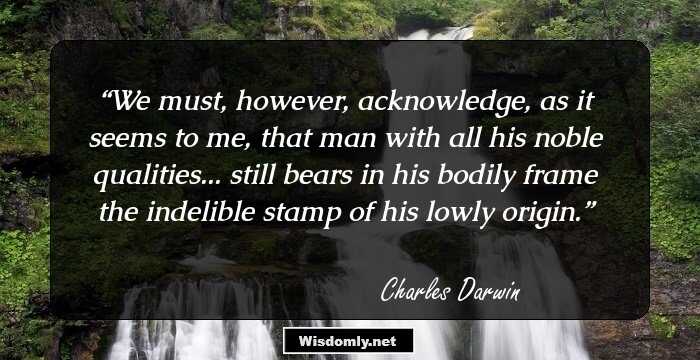
We must, however, acknowledge, as it seems to me, that man with all his noble qualities... still bears in his bodily frame the indelible stamp of his lowly origin.
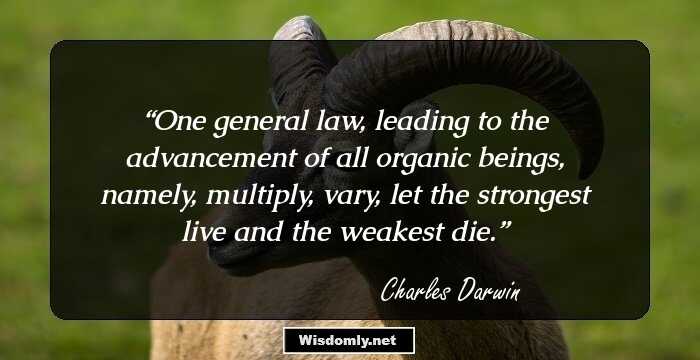
One general law, leading to the advancement of all organic beings, namely, multiply, vary, let the strongest live and the weakest die.
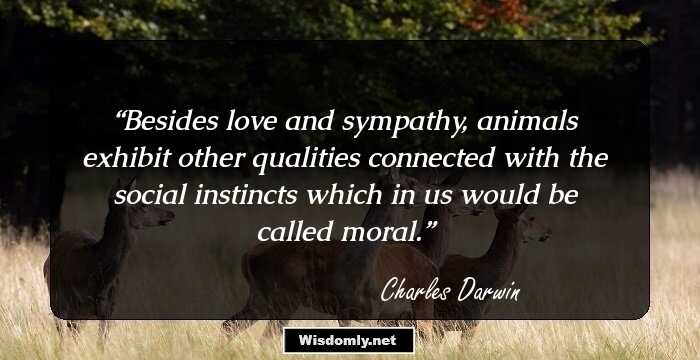
Besides love and sympathy, animals exhibit other qualities connected with the social instincts which in us would be called moral.
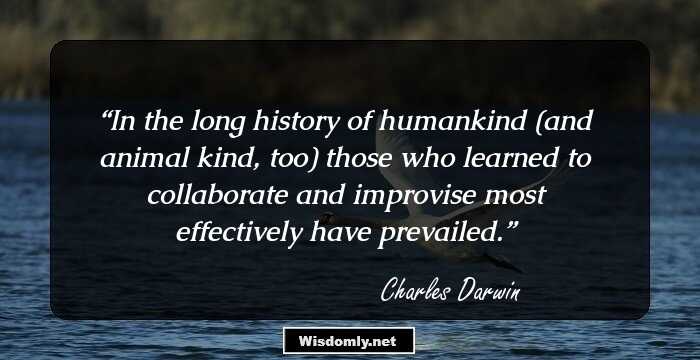
In the long history of humankind (and animal kind, too) those who learned to collaborate and improvise most effectively have prevailed.
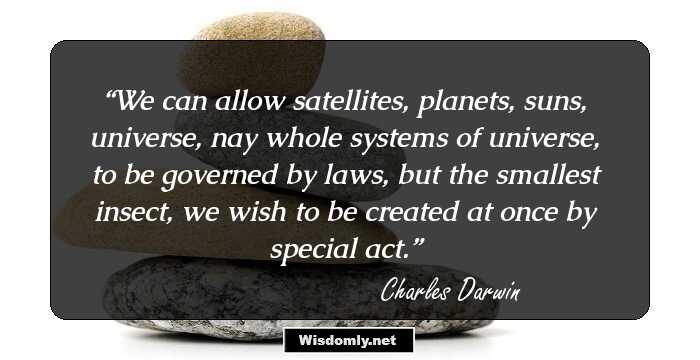
We can allow satellites, planets, suns, universe, nay whole systems of universe, to be governed by laws, but the smallest insect, we wish to be created at once by special act.
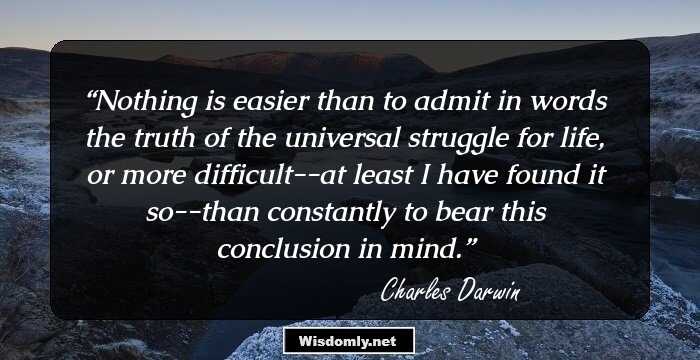
Nothing is easier than to admit in words the truth of the universal struggle for life, or more difficult--at least I have found it so--than constantly to bear this conclusion in mind.
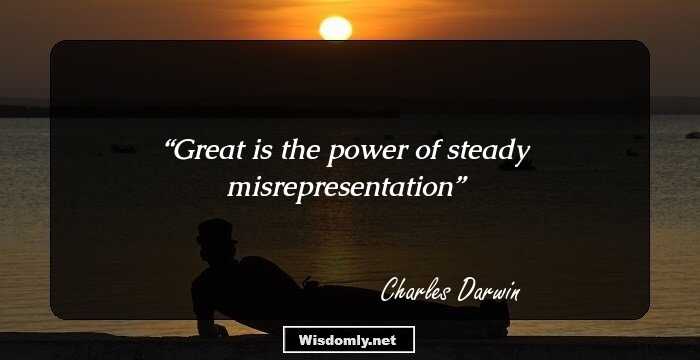
Great is the power of steady misrepresentation
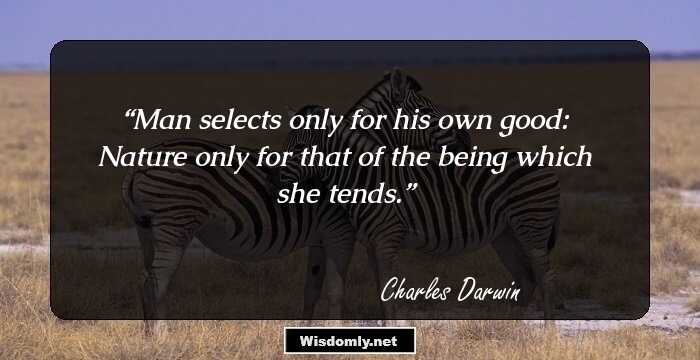
Man selects only for his own good: Nature only for that of the being which she tends.
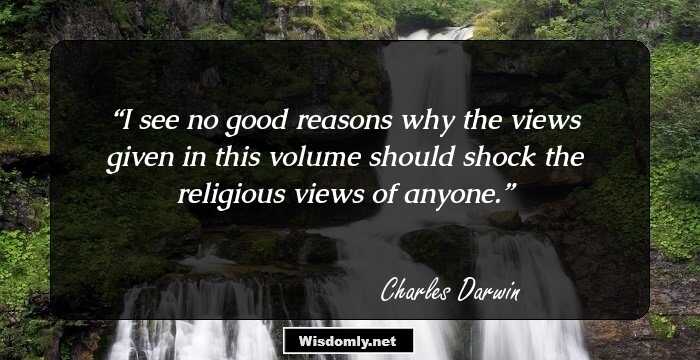
I see no good reasons why the views given in this volume should shock the religious views of anyone.
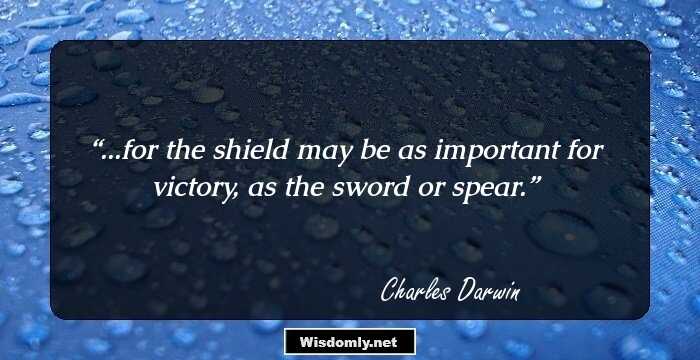
...for the shield may be as important for victory, as the sword or spear.
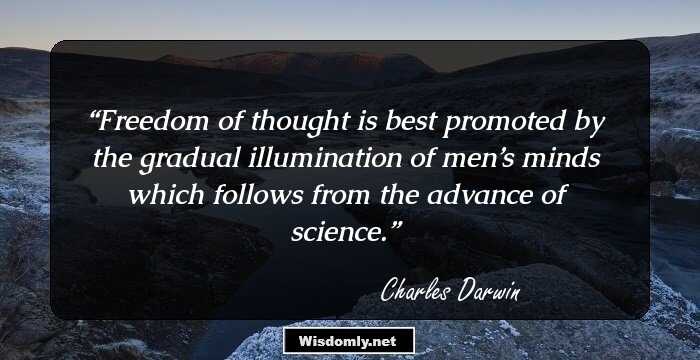
Freedom of thought is best promoted by the gradual illumination of men’s minds which follows from the advance of science.
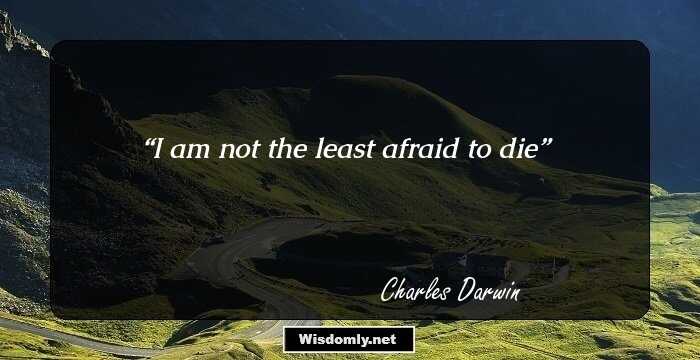
I am not the least afraid to die
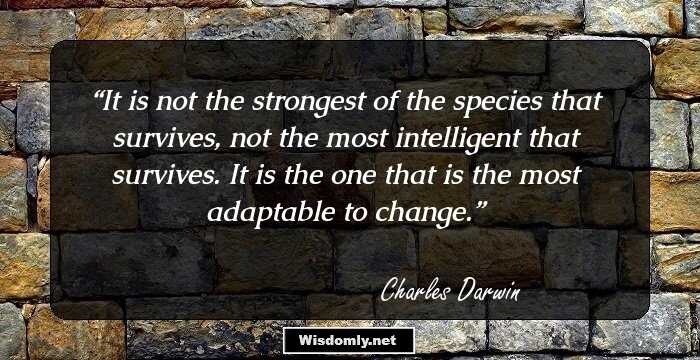
It is not the strongest of the species that survives, not the most intelligent that survives. It is the one that is the most adaptable to change.
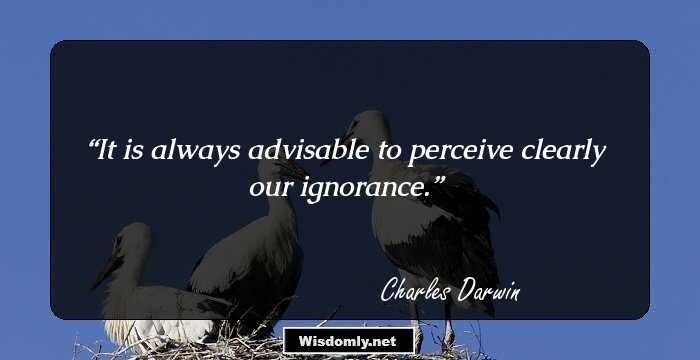
It is always advisable to perceive clearly our ignorance.
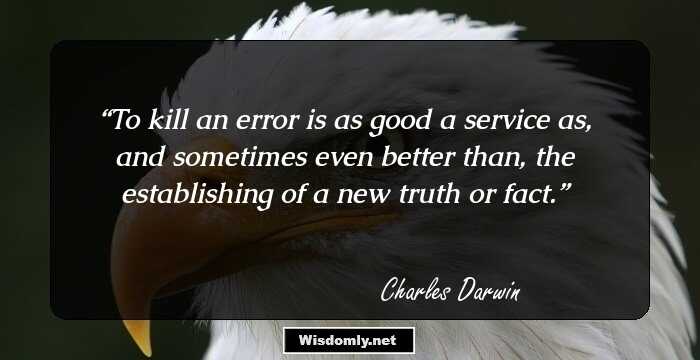
To kill an error is as good a service as, and sometimes even better than, the establishing of a new truth or fact.
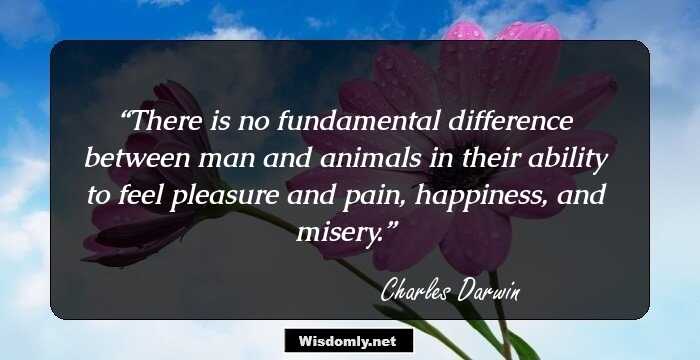
There is no fundamental difference between man and animals in their ability to feel pleasure and pain, happiness, and misery.
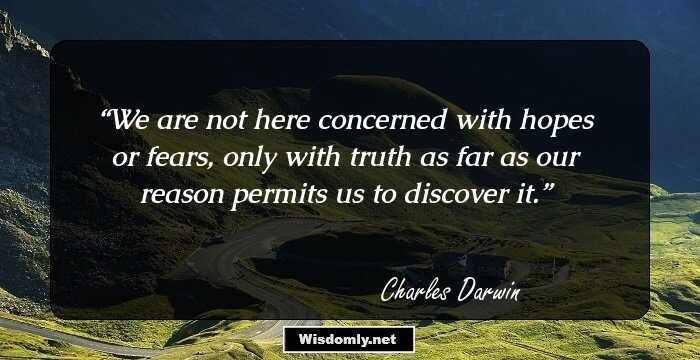
We are not here concerned with hopes or fears, only with truth as far as our reason permits us to discover it.
![The loss of these tastes [for poetry and music] is a loss of happiness, and may possibly be injurious to the intellect, and more probably to the moral character, by enfeebling the emotional part of our nature.](https://www.wisdomly.net/images/quotes/charles-darwin-11137.jpg)
The loss of these tastes [for poetry and music] is a loss of happiness, and may possibly be injurious to the intellect, and more probably to the moral character, by enfeebling the emotional part of our nature.










